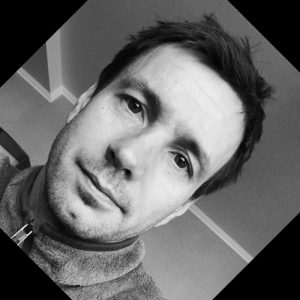Peace Corps and a master’s degree can each launch a career. Brian Kiger ’05 combined them and has since pursued a calling in international development that allows him to touch the lives of many. It all started at Illinois State.
“My time with the Stevenson Center was a challenging reward that laid the foundation for my life since,” he said.
After completing a bachelor’s degree in Spanish at the University of North Carolina at Chapel Hill, Kiger served with AmeriCorps. Kiger translated documents and provided administrative support as part of the VISTA program with the Hispanic Center in Durham, North Carolina.
“I thoroughly enjoyed this opportunity as an introduction to a diverse culture within a changing state where I was born and raised,” Kiger said.
“It was the diverse experiences and backgrounds of the professors working with the Stevenson Center that provided me with some skills for today, allowed me to test some of those skills, and provided some more knowledge on how to adapt those skills for tomorrow.”
In 2003 Kiger arrived on campus to pursue a master’s degree in applied economics as part of the now-retired Peace Corps Master’s International program. That program allowed graduate students to combine their studies with Peace Corps service. Students spent one calendar year on campus taking classes in their discipline and in applied community and economic development prior to departing for Peace Corps for their professional practice. In 2004 Kiger left for the Kyrgyz Republic, also known as Kyrgyzstan, to work in economic empowerment. He described it as “a predominantly mountainous country, overflowing with natural beauty, rugged and worn by earth’s elements.”
Kiger summarized those eventful two years.
“I lived with a farmer’s family in the Ferghana Valley, volunteered with an agricultural trade association, started a youth-run sports league, fell in love, and began a span of living and working abroad for the last 15 years,” he said.
That summary cannot capture how his service changed him, how he “learned patience, understanding, empathy, and appreciation, generally, and particularly for living with fewer possessions and a greater appreciation and understanding of the concept of time.”
Since completing his master’s degree and Peace Corps service (“one of the best decisions of my life”), Kiger has worked and lived in Ghana, Liberia, Nigeria, Tajikistan, and Uzbekistan.
“Most of my satisfaction has come from being able to coach team members to taking on greater amounts of responsibility, learning during the process, redefining their perceptions of what they can do, and using market-oriented principles to reduce social inequities,” he said. “Everyone wants to have a choice; not everyone has one though. Much of my work has centered around working with private and public sector entities to make products and services available to underserved markets—providing more options, and information for persons to have an informed choice.”
Kiger worked with a team in Ghana to make toilets affordable and accessible. Kiger noted that approximately 80 percent of Ghanaians do not have access to a toilet.
“It’s this lack of access for a natural human function that creates a local and public health risk—how can we improve ourselves and our communities if we’re consistently falling ill?”
With his strong background in increasing public access to resources and his specific interest in building human capital, Kiger is head representative in Uzbekistan for DAI, an employee-owned company that provides consulting services in the public and private spheres.
“We advise across the country’s agricultural sector—optimizing farming resources to become more productive, with less inputs and waste,” Kiger explained.

Brian Kiger ’05
Thinking about the various communities he has called home, Kiger noted, “Each place has impacted who I am today—I think positively. Each location steepened my learning curve, professionally and personally, exponentially.”
The lessons ranged from how “to smile as it reduces the sting of suffering” to “new approaches to leading culturally diverse teams.” Kiger reflected on how his experience with the Stevenson Center has shaped his career.
“Although I may not have had the highest grades, I surrounded myself with intelligent cohorts (and afterward colleagues)—learning from the folks I interacted with most frequently. It was the diverse experiences and backgrounds of the professors working with the Stevenson Center that provided me with some skills for today, allowed me to test some of those skills, and provided some more knowledge on how to adapt those skills for tomorrow.”
The Stevenson Center programs continue to jump-start careers for those who want to combine their studies with service, whether in the U.S. or abroad. Applied, interdisciplinary graduate programs in community and economic development are open to those who have at least one year of full-time experience in community development or social services, whether through employment or programs like AmeriCorps and Peace Corps. The Stevenson Center also manages the Peace Corps Prep program for undergraduate students interested in Peace Corps service or careers in the public sector.
Shaylin Quaid is the Stevenson Center’s public relations intern.

